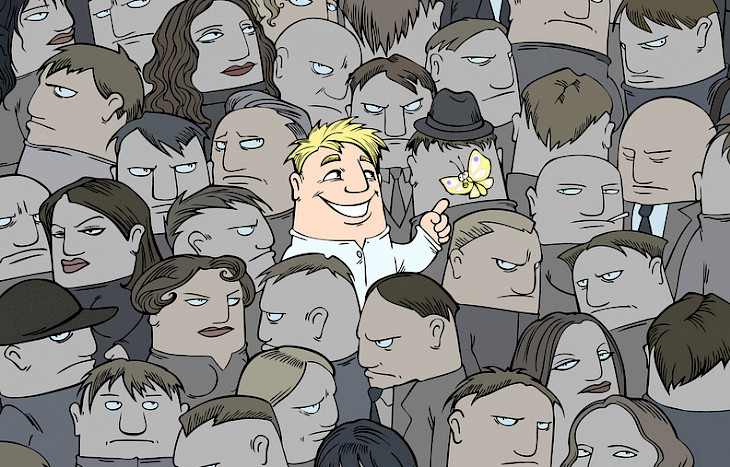Alina Murzaeva
There is a feeling that in our tense and troubled world, we talk very little about kindness. Kindness, like an atavism, is rarely seen on the front pages of newspapers or in social media feeds, perhaps because we have become accustomed to receiving another dose of world-shaking news, reports of terrible events near and far. Nevertheless, it is believed that kindness has not become any less great because of it, and sometimes it even possesses a more overwhelming power. Especially when kindness responds to evil. Has it always been this way, or has it become so now?
From childhood, we are taught by our parents, kindergarten, and school that kindness is good. We, the generation of the 80s, watched kind Soviet cartoons (although there are some questions about them now), read kind poems, and looked at role models in movies like "Moscow Does Not Believe in Tears" (here, there seem to be even more questions) or "The Irony of Fate". And after finishing the 11th grade, something like a wild, wild west begins, meaning real life, where homo homini lupus est, and it becomes necessary to engage in a battle called life.
Other necessary qualities come to the forefront, such as the ability to adapt and be a leader, "produce clickable content," be a unique commodity, and many other contradictory things. Virtue, honor, and kindness haven't exactly gone out of fashion; they have just moved a little further away in the modern pace of life.
Perhaps that's why we are not entirely surprised or even more upset when we see a person stepping on others, betraying or lying? Because it's not us who are like that, but life is like that, right? And immediately theories emerge – justifications stating that if a large group of people agrees that some evil is normal, then it seems to cease being evil. That's how we live!
But! (It would be strange if there were no "buts"). So, I want to witness that there are people who are so kind that they punish people around them with their kindness! Almost like Prince Myshkin from Fyodor Dostoevsky's novel. And it is this characteristic of kindness that I would like to reflect upon.
What kind of shock must a person (me/us) feel when their malice is met with kindness? How can we understand this? And most importantly, what do we do with it? After all, it would be expected to engage in a scandal, to fight back, but a right cheek bewilders and even angers. Out of powerlessness, you start calling the person a loser and weakling, causing even more harm, and in response, there is some kind word or deed. Truly, a person hates the one they have offended. And in response, forgiveness and understanding that we are all just human, with all our flaws and weaknesses.
Various scoundrels can take advantage of this as many times as they want, but for some reason, I am convinced that in the end, we cannot escape the feeling of our own powerlessness. Our conscience, even if it is in a deep sleep, is our ultimate critic and judge. Sooner or later, it will catch up with us.
Remember how it was in Bulgakov's "The Master and Margarita"? Seal all the cracks with rags, because this kindness can seep out! When people fight against each other and employ various dirty tactics, it seems understandable, as it is a struggle. Kindness, on the other hand, is completely incomprehensible; it always goes against logic. Most likely, this is our advantage in the face of artificial intelligence from our very limited human arsenal. Responding to evil with kindness is, as I believe, the most difficult punishment for a person. It is hard to bear because a person is inevitably vulnerable to something higher, something genuine and selfless. And with that, we need to cope, to remember about goodness, to be and extol it. Not to punish, but in the name of the higher right to be Human.
For true, simple goodness always triumphs. Always!"

